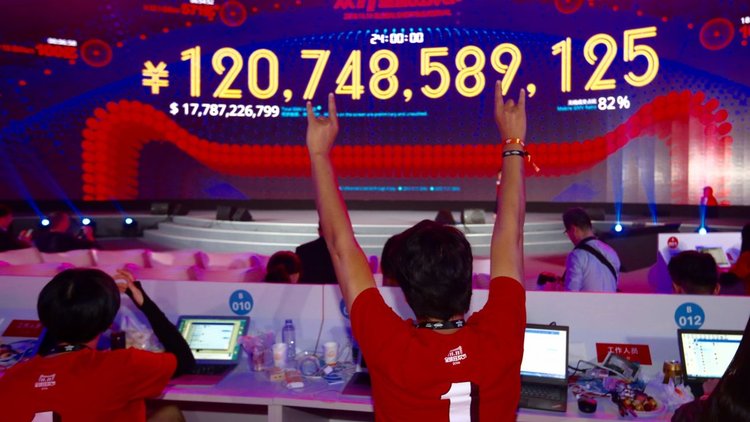In 2009, Chinese retailer Alibaba formalized Singles Day as a shopping event for people to buy things for themselves, in contrast to all of the holidays that double as occasions to purchase gifts for loved ones. Singles Day has become the largest annual day for online shopping globally, and this year, Alibaba has launched a three-week “festival” with more than 140,000 merchants and even brick-and-mortar stores participating. Meanwhile, Alibaba’s competitors, such as JD.com, which partners with Walmart, offers deals on Singles Day. There’s a startup called National Day Calendar that not only collects all of this information, but decides which new days should be added. “If there’s a great story behind it, then you have a much better chance of succeeding.” One creative submission that Anderson says exemplifies what the committee looks for is National Doorbell Day, submitted by Ring, a company that makes smart doorbells. “Take National Doughnut Day,” Anderson says. But Anderson contends that businesses don’t have to offer discounts to get customers in the door on one of these holidays. Goller offers tips to retailers who want to offer deals on non-traditional holidays. Companies can also leverage their data to prepare for sales events, Goller advises. “Social media is 24/7, and there’s always a need to create content that is new, now, fresh and exciting,” Goller says.

Every day is a “National Day of Something” or some kind of holiday. For example, Nov. 8 is National Cappuccino Day, which many thousands of Americans will discover when they see the hashtag #NationalCappuccinoDay trending on Twitter, catch a coffee brand posting about it on Facebook or hear a TV show host cheerfully proclaim it.
These seemingly random days even occupy the calendar on traditional holidays such as Halloween (National Doorbell Day) and Thanksgiving (National Eat a Cranberry Day), sometimes with several sharing one date.
Add shopping days into the mix, and the date-pegged marketing opportunities begin to seem continuous. The day after Thanksgiving, known as Black Friday, is as recognized for big sales as it is for leftovers, Cyber Monday is gaining momentum and Small-Business Saturday is sandwiched between them.
Related: 21 Simple Ideas for a Successful Small Business Saturday
Then there are international events, such as the annual Chinese ecommerce bonanza Singles Day that occurs on Nov. 11, the same day as Veterans Day in the U.S. Singles Day originated in the 1990s among students at China’s Nanjing University as a day to celebrate being single. In 2009, Chinese retailer Alibaba formalized Singles Day as a shopping event for people to buy things for themselves, in contrast to all of the holidays that double as occasions to purchase gifts for loved ones.
Last year, Singles Day sales on Alibaba’s sites totaled $17.8 billion, with $1.4 billion generated in the first seven minutes and $5 billion within the first hour. By comparison, combined online sales on Black Friday and Cyber Monday totaled $6.8 billion in the U.S. in 2016, according to Visual Capitalist. Singles Day has become the largest annual day for online shopping globally, and this year, Alibaba has launched a three-week “festival” with more than 140,000 merchants and even brick-and-mortar stores participating.
Alibaba and other participating companies didn’t invent the concept of Singles Day, but they identified a cultural phenomenon and seized it. Meanwhile, Alibaba’s competitors, such as JD.com, which partners with Walmart, offers deals on Singles Day. Earlier this year, JD.com created a shopping day of its own on Aug. 8, which has been compared to Amazon’s Prime Day.
As business leaders gear up for 2018, they should keep in mind that the calendar is filled with quirky holidays to capitalize that competitors might not have on their radar. There’s room for companies to interpret and commemorate these holidays however they see fit — or try to create new ones.
‘National Day of Anything’
Marketers and business leaders don’t have to wait passively for made-up holidays to start trending in their feeds. There’s a startup called National Day Calendar that not only collects all of this information, but decides which new days should be added. Many media outlets consult it religiously, and it issues press releases and other alerts.
Any company or organization can submit a new National Day for consideration. The National Day Calendar has a committee of four people who vet submissions, which recently surpassed 20,000 per year. In a given year, the…

COMMENTS